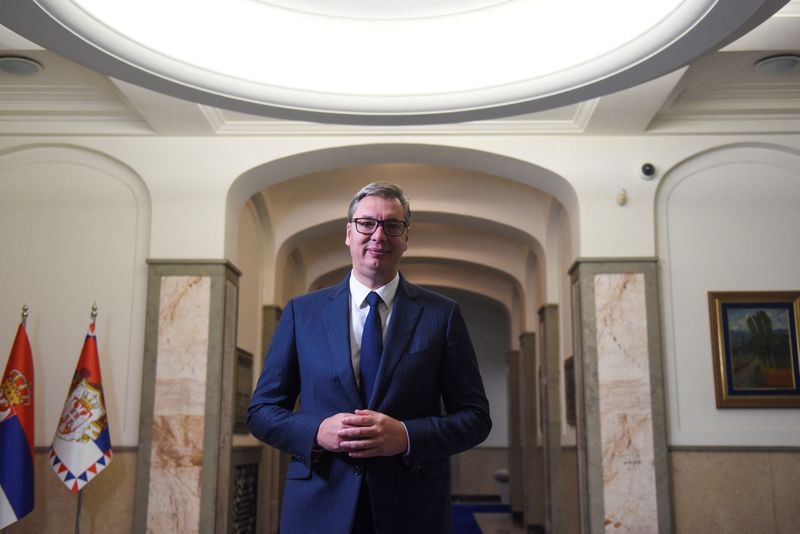BELGRADE (Reuters) - Serbia's President Aleksandar Vucic said the country's finances were resilient enough to secure alternatives to Russian energy to tackle supply shortages expected over coming months.
The Balkan country is heavily dependent on Russian oil and gas, which have been disrupted following the Ukraine war and the imposition of sanctions on Moscow by the European Union, which Serbia is seeking to join.
Vuciv said Serbia was seeking fuel supplies wherever it could.
"We have to pay the price of the war on European soil," he said, but added the people would not suffer as the nation's financial system could cope.
"We will be taking Iraq (oil), ... I will try to speak with Venezuela as well. We would take from wherever. We are not squeamish," Vucic said.
Serbia also plans to purchase gas from Azerbaijan in 2023 and has increased the amount of gas it holds in storage to the highest level yet.
Vucic said the country has enough gas in storage for 60 days, using domestic facilities and rented storage in neighbouring Hungary https://www.reuters.com/business/energy/serbia-store-gas-hungarian-sites-ahead-winter-2022-05-25/.
"There's already 607 million cubic metres of gas (there), which means if you are consuming it in winter ... you can get ... 10 million cubic metres per day, or over 60 days," he said in an interview in Belgrade.
Serbia also needs to purchase additional coal for its thermal power plants, which provide almost 70% of the country's electricity.
Vucic said Serbia was seeking to buy around 2 million tonnes from as far as China and Indonesia and that it had the money to do so.
Serbia's gross domestic product was expected to grow by around 4% this year, he said.

Inflation, however, is high, largely because of the rise in fuel prices linked to Russia's invasion of Ukraine, begun on Feb. 24.
The Central Bank said Serbian inflation was 12.8% in July, up from 11.9% in June.